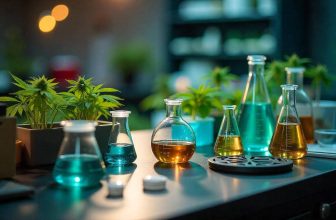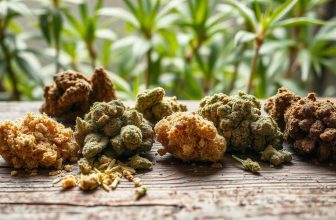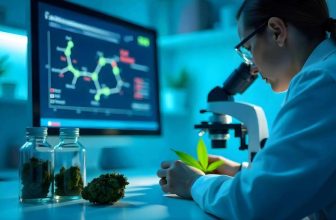CBD and CBDa are often interchanged in use, but while they’re closely related, both substances have entirely different functions. However, it’s easy to assume that CBD and CBDa are the same things, especially since they are both cannabinoids. This article will answer all your questions about the relations between CBD and CBDa.
What is CBDa?
CBDa is the common name for Cannabolic Acid. It is one of the compounds that is mostly found in a fresh Cannabis sativa plant. Like CBD, CBDa is a cannabinoid, and it is scientifically regarded as the acid precursor of CBD. Unlike CBD and THC, CBDa is lesser known in the market, and there is limited scientific research on the compound.
However, many cannabis lovers have been using CBDa in its raw form. Some researchers also believe that it is harmless, but there’s no conclusive data on this subject. In addition, It has non-psychoactive effects and won’t cause any highness. CBDa is currently available in oil, tinctures, edibles, and more products.
What Are The Differences Between CBD and CBDa?
Although CBD and CBDa are quite similar in nature, there are distinct features that separate the two compounds. Cannabolic Acid is often thought of as the raw form of CBD. It is present in raw cannabis or growing plants, and it can be consumed in several different ways, such as oil, tinctures, topical creams, and more.
Meanwhile, you can’t find any CBD in a raw cannabis plant. When a fresh plant is heated, it releases CBD instead of CBDa. This process is known as decarboxylation, and it is meant to draw out the potential healing effects of CBD. In addition, CBDa may not interact with the body the same way that CBD works.
Does Cannabolic Acid Have Some Benefits?
There are over 80 compounds that are found in the cannabis plant, including CBD, CBDa, and THC, which are commonly termed cannabinoids. Like CBD, CBDa is said to have therapeutic effects on the human body. However, there is little scientific evidence to confirm these claims. Many consumers use CBDa massage oil and tinctures as alternative treatments.
Researchers believe that CBDa can act as a COX-2 inhibitor which makes it suitable for inflammation and severe pain conditions. It can also be used as an antiemetic to fight nausea and vomiting. Some test cases have shown that CBDa might be better for nausea and high anxiety than CBD.
Conclusion: Why Can You Buy CBD Without CBDa?
Although there is a lot more scientific research on CBD, CBDa has been gaining more interest in the market. Like CBD, CBDa is said to come with several unique health benefits without causing any psychoactive effects. However, CBDa and CBD both work on the body differently, so they may not be used interchangeably.
Many health-conscious consumers use CBD and CBDa for their holistic diets. Although some test trials claim that CBDa works better than CBD, there is no conclusive data to support these claims. We recommend sticking to CBD because it has more scientific backing and offers a variety of health effects.
Follow us on 
Join the Community
Don't miss any news with our newsletter





